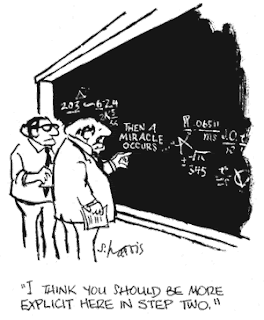Come check out the new site!
Truthfully, I'd like to do a reaction to his story, but what makes it beautiful, thought provoking, and just pure meta-cognitive fun is the joy of not knowing anything before reading the piece. It's already very popular on the internet; if you havn't read it, do so now. You're missing out.
The Egg by Andy Weir
Also, lost any readership in the past, but I'm back!
skip to main |
skip to sidebar
- "---tweeting for the cerebral cortex"
A New OutLook
When I started this blog, I was determined to learn as much about the world as possible, and then present it to any person who has the same desire. Presenting such specific information--mostly from procrastination-- is quit cumbersome. I think the blog should reflect the attitude I have about learning: Fun. I shouldn't be tied down because I am not an english major to perfect not only grammar but word usage. (Although I understand it can be annoying and be a deterrent) So, I just want it to be an enjoyable process that people who come here not only have a decent time while leaning something, but comment freely so that I can build upon what I know.
Can a Theory Become a Law?
No, a theory and a law have two separate agendas and are not directly connected as most people believe.
The first problem within scientific understanding is the misunderstanding of the word theory. In common usage we refer to theory as a guess or conjecture, however, that is a slightly wrong outlook when applied to scientific theory. A theory explains why things are the way they are.
I found a good definition for it use-
A law on the other hand describes the universe. Lets take a example:
First lets take Boyle's Law- (Wiki Definition)
So, in essence, they both can work together to give a complete understanding, but a theory is NOT a unproven law. Its a very important concept to grasp whilst arguing idea changers such as evolution. It is a true statement to say that evolution is a/only a theory, but in most cases people are referring to the common usage and that is not right.
Theory- Explanation based on facts and it can be proven wrong however it is our best understanding for the why.
A theory cannot become a law nor a law a theory
The first problem within scientific understanding is the misunderstanding of the word theory. In common usage we refer to theory as a guess or conjecture, however, that is a slightly wrong outlook when applied to scientific theory. A theory explains why things are the way they are.
I found a good definition for it use-
"a proposed explanation whose status is still conjectural, in contrast to well-established propositions that are regarded as reporting matters of actual fact" (dictionary.reference.)That means that a theory is still a "guess", but one based on facts. So, here is the kicker. There is NOTHING above a theory. A theory is what you ultimately strive for when it comes to explaining things.
A law on the other hand describes the universe. Lets take a example:
First lets take Boyle's Law- (Wiki Definition)
is one of many gas laws and a special case of the ideal gas law. Boyle's law describes the inversely proportional relationship between the absolute pressure and volume of a gas, if the temperature is kept constant within a closed system.Boyle's law describes and observation of a explicit event however it does not conclude the explanation for why it happens.
So, in essence, they both can work together to give a complete understanding, but a theory is NOT a unproven law. Its a very important concept to grasp whilst arguing idea changers such as evolution. It is a true statement to say that evolution is a/only a theory, but in most cases people are referring to the common usage and that is not right.
Theory- Explanation based on facts and it can be proven wrong however it is our best understanding for the why.
A theory cannot become a law nor a law a theory
Who are the Aboriginal People?
Aboriginal people are the indigenous people, with a small population, of Australia. They resemble the Native Americans in their lifestyles of groups and spirituality and passing down of stories. Although they were given full citizen rights in 1967, they still fight for more rights to this day through the Aborigines League (AAL) and the Aborigines' Progressive Association (APA). These organization have a long history of civil rights issues that date back to the 1920's and as far as I have read they have not reached a solid state of government intervention to be comfortable.
I found some great articles on them for more information. Please visit the links below-
AustraliaBlog
Apex
I found some great articles on them for more information. Please visit the links below-
AustraliaBlog
Apex
What does Closed Captioned mean?
The subtle little phrase that flashes for everyone before most television and movie shows is easily overlooked and lost out of mind for a lot of viewers. So, for those of you who have overlooked this simplistic item a lot of people have come to rely on; Closed Captioned means that any one with a hearing disability can access video programs with on screen text correlating with the speech of the show.
Labels
Blog Archive
Recent Posts
About Me
Followers
(c) Copyright 2009 Random Knowledge All Rights Reserved.
Blogger Templates created by Deluxe Templates
Wordpress Theme by Skinpress





